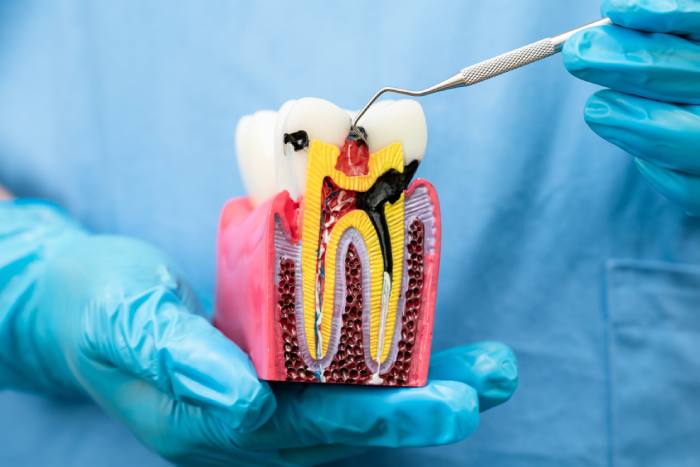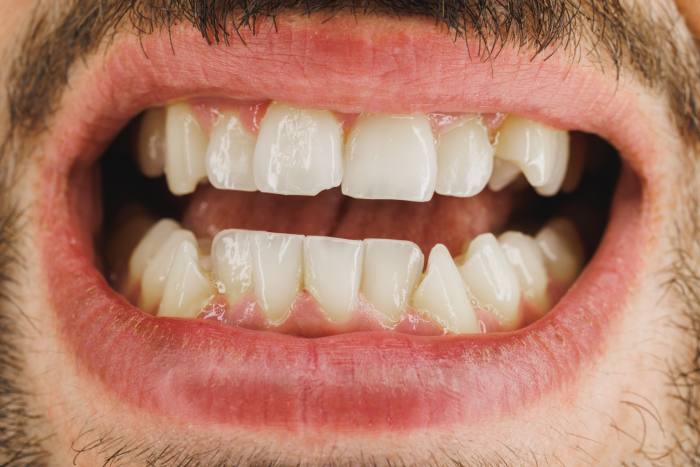Have you ever wondered if your tendency to get cavities is simply something you inherited? It’s a common concern, and many people believe that “bad teeth” run in their family. While genetics can play a role in your oral health, the story of cavities is more complex than simple inheritance. Let’s explore the link between cavities and genetics and what you can do to maintain a healthy smile.
Understanding Genetic Predispositions
It’s true that certain genetic factors can make some individuals more susceptible to tooth decay than others. These factors can include:
Enamel Quality
The strength and thickness of your tooth enamel, the outer protective layer of your teeth, can be influenced by genetics. Some people may naturally have softer or thinner enamel, making their teeth more vulnerable to acid erosion and decay.
Tooth Shape and Alignment
The shape and alignment of your teeth can create areas that are harder to clean effectively. If your teeth are crowded or have deep grooves, food particles and bacteria may accumulate more easily, increasing the risk of cavities.
Saliva Composition and Flow
Saliva plays a crucial role in neutralizing acids and washing away food debris. Genetic factors can influence the amount and composition of your saliva, affecting its protective abilities.
Taste Preferences
Some individuals may have a genetic predisposition towards sweet tastes, potentially leading to a higher consumption of sugary foods and drinks, which are major contributors to cavity formation.
Beyond Genes: The Power of Environment and Habits
While genetics can increase your susceptibility, it’s essential to understand that they are not the sole determinant of whether you develop cavities. Environmental factors and your daily oral hygiene habits play a much more significant role.
Oral Hygiene Practices
Brushing your teeth twice a day with fluoride toothpaste and flossing daily are fundamental in removing plaque and bacteria that cause cavities. Neglecting these practices significantly increases your risk, regardless of your genetic makeup.
Diet
Frequent consumption of sugary and acidic foods and drinks creates an environment in your mouth that favors the growth of cavity-causing bacteria. Limiting these items is crucial for preventing tooth decay.
Regular Dental Check-ups and Cleanings
Visiting your dentist every six months for routine check-ups and professional teeth cleanings allows for the early detection and treatment of any developing issues. Professional cleanings remove plaque and tartar buildup that you can’t eliminate at home.
What Can You Do?
Even if you believe you have a genetic predisposition to cavities, you are not powerless! By focusing on proactive oral care, you can significantly reduce your risk:
Maintain a rigorous oral hygiene routine
Brush thoroughly twice a day and floss daily.
Limit sugary and acidic foods and drinks
Opt for a balanced diet that is low in sugar.
Schedule regular dental check-ups and cleanings
Visit Ames Dentistry in Xenia or Wilmington every six months, or as recommended by our team, for comprehensive exams and cleanings.
Consider preventive treatments
Discuss fluoride treatments or sealants with your dentist, which can provide extra protection against decay.
Conclusion
At Ames Dentistry, our skilled team is dedicated to helping you achieve and maintain a healthy, radiant smile. We understand that everyone’s oral health needs are unique, and we provide personalized care to address your specific concerns.
Ready to take control of your oral health? Schedule your appointment today at our Xenia office by calling (937) 372-8502 or texting (855) 559-0201, or at our Wilmington office by calling (937) 382-6971. We look forward to helping you smile with confidence!







